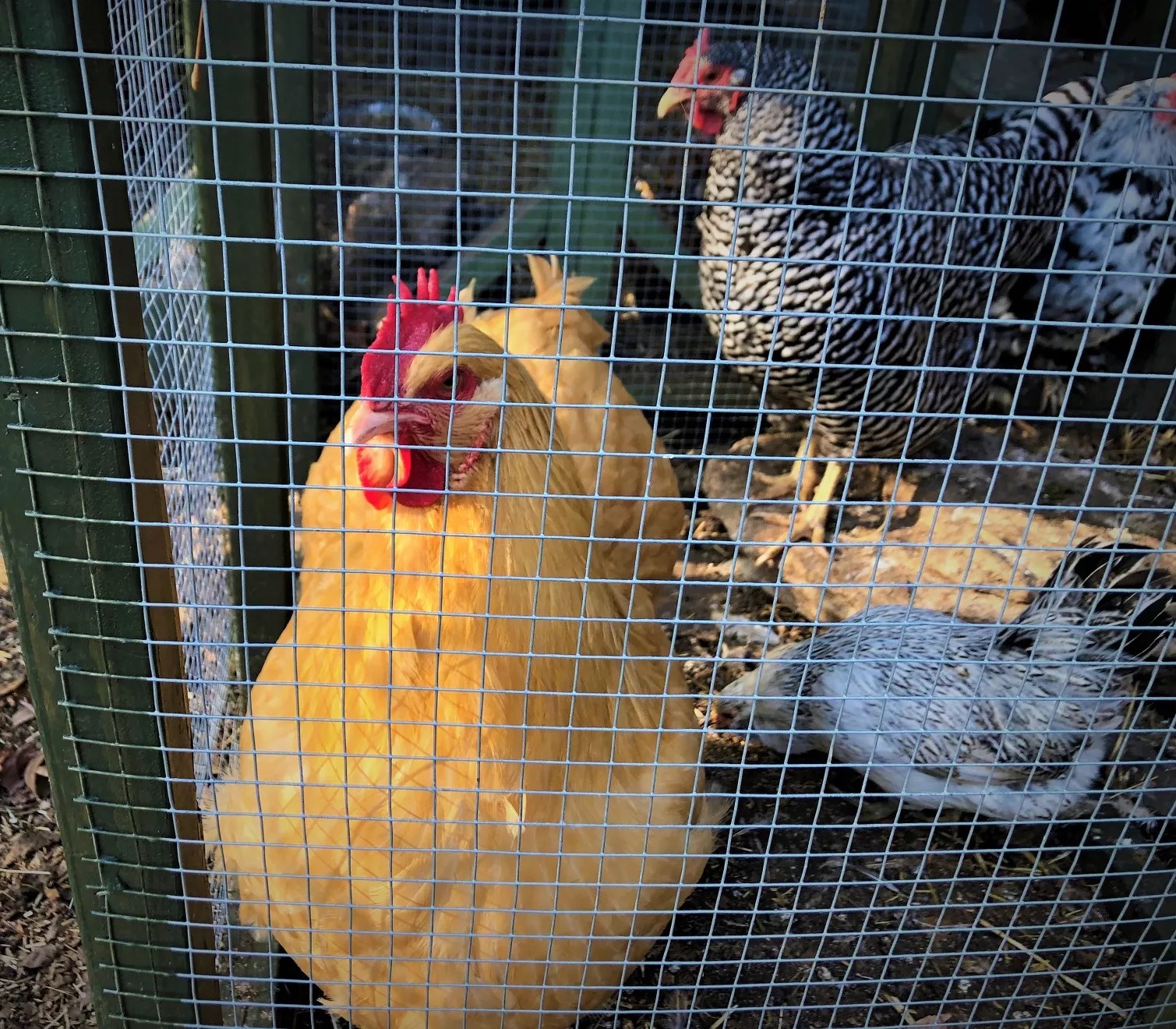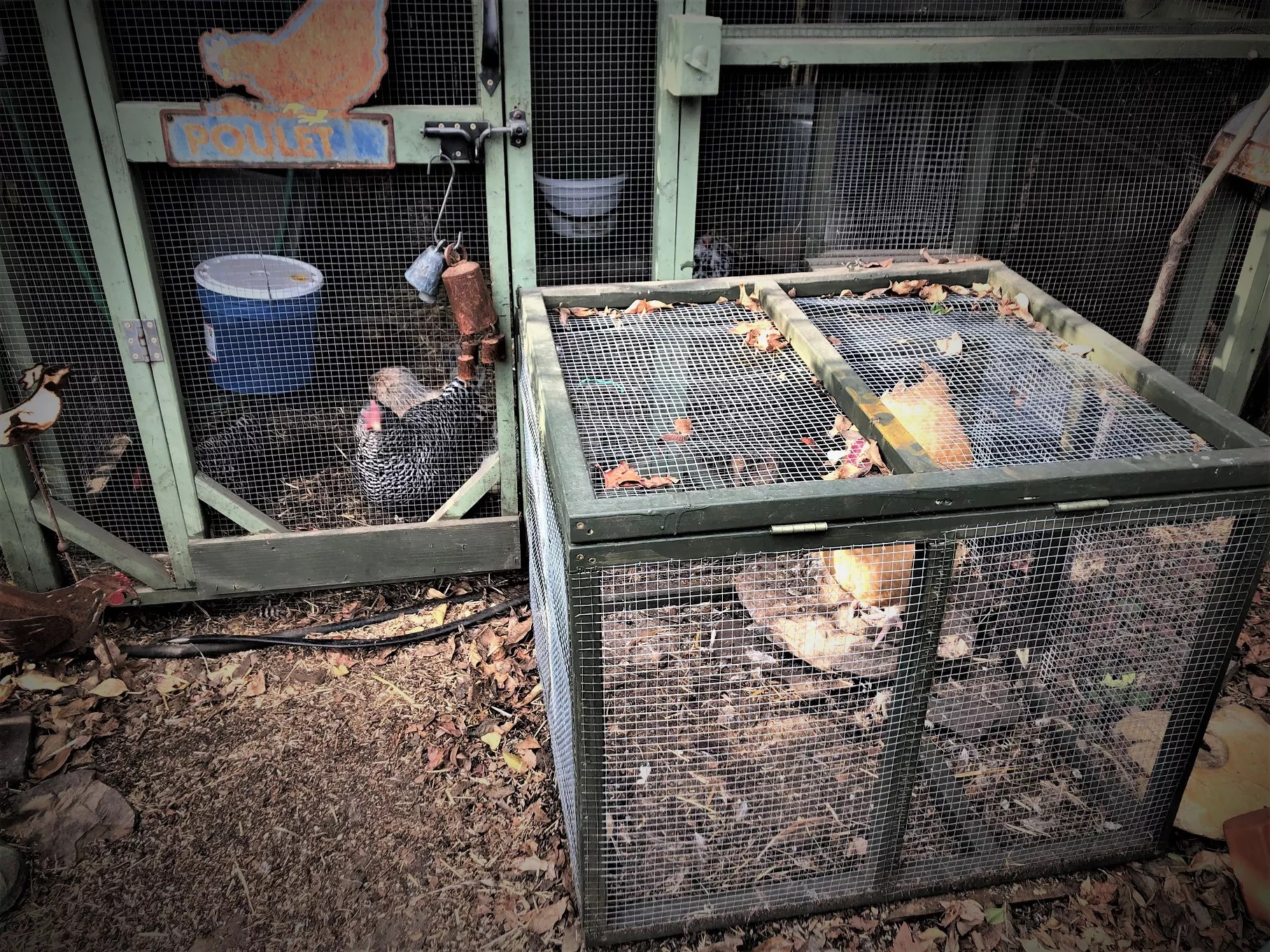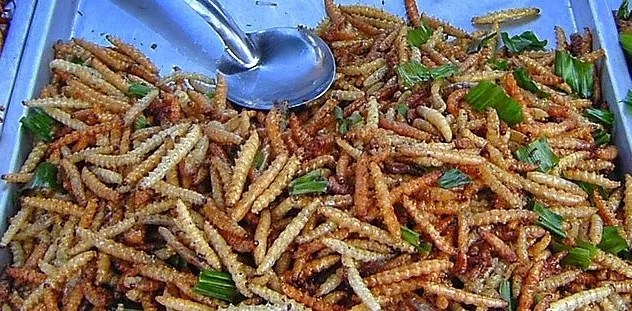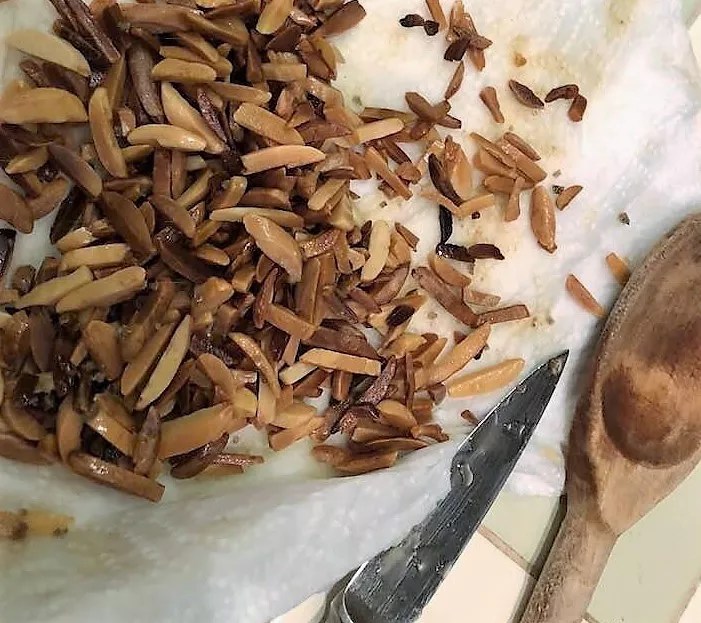
Jim Schutze

Audio By Carbonatix
I don’t know how many people know this, but my wife, Mariana Greene, was a pioneer of urban chicken-keeping during her days as a garden columnist for The Dallas Morning News, years before backyard chickens became chic. She helped make them chic. To this day she takes her chickens extremely seriously and would do anything for them.
That’s why I was so concerned the other night when I came into the kitchen and found her sampling delicate mouthfuls of the dried mealworms I thought I saw her preparing for her chickens in a heated frying pan on the stove. A confession: I’m probably always looking for trouble.
I may especially look for issues where the pampering of the chickens is concerned. I might even derive a certain sense of vindication when I think I’ve caught things going too far. And then there’s the more intimate thing having to do with kissing a person who has been eating mealworms.

The Florida room
Jim Schutze
But of course I was wrong, as I always am. She was toasting almond slivers that were intended for human consumption. Still. What if those had been mealworms? I rest my case.
Every time I think things have gone too far with the chickens at my own house, I do a little bit more reporting on the subject and find out how far behind the curve I am. There’s a company outside Austin now that manufactures and delivers a type of walk-in chicken coop that starts at $4,250. Starts at. The ad says, “Keep up to 25 hens in ultimate style and function and make care a breeze.”
People in Silicon Valley pay $20,000 for chicken coops and then bring the chickens into their own homes anyway and let them run around on their beds wearing chicken diapers.
What is “ultimate style” for chickens? Is there a regular style? Do some chickens have no style at all?
But that’s nothing. The Austin chicken coop I saw online was the crudest form of hippie nothingness. The Washington Post did a piece last March about backyard chickens in California’s hyper-upscale Silicon Valley. Under the high-minded motto, “Democracy Dies in Darkness,” the Post reported that people in Silicon Valley pay $20,000 for chicken coops and then bring the chickens into their own homes anyway and let them run around on their beds wearing chicken diapers. Just let me die.
That wasn’t even the part I found most perplexing. The story said: “At least one owner plans to transform his coop into an Airbnb for humans once the abode’s feathered inhabitants die.” I found that disturbing at so many levels. I’m not even sure I know where to begin.
If you pay $20,000 for a chicken coop, why would you assume all the chickens in it are going to die? What on earth goes on in there? Are the chickens being forced to take Suzuki violin lessons or something?
If all the chickens do die, why would you think the next step down in recycling your chicken coop would be to rent it out to human beings as an Airbnb? I don’t know if this idea is more disturbing as a statement about chickens or about Airbnbs. Or, for that matter, about human beings.
See, that’s where I go south on the whole backyard chicken thing. It’s why I keep a sharp eye out for things like involuntary mealworm-eating. I think urban people — people who are not farmers — just get very confused about animals. Their extremely highly developed feelings about pets get all in a mishmash with the concept of agricultural animals that are raised to be killed and eaten.
Does allowing a chicken to run around on one’s bed in diapers mean that the chicken is thereby forever ritually protected from being slaughtered and turned to soup? Or does it just make the soup taste better?

Mealworms
en.wikipedia.org
I have waitpersons introducing me to my food all the time, telling me where it grew up and how it died, none of which do I ever want to know one word of. But obviously somebody must. Is this all part of the same thing?
“Our chicken marsala today is made with diced and braised breast meat from chickens raised in a $20,000 chicken coop in Silicon Valley, California. All of the chickens in that coop have now been humanely delivered to their everlasting reward, and the coop is occupied by human beings.”
Scary. And after the people die? The closer to nature we try to get, the farther away I sometimes think we probably should go.

You tell me.
Mariana Greene
The latest thing at our house was the Florida room. The chickens were standing around in the rain, getting wet. I had built them a perfectly sound and dry house. (My rates are WAY cheaper than the place outside Austin.) But apparently the chickens must have skipped school the day the lesson on going in out of the rain was taught. So I was persuaded to build a tin roof over the chicken yard.
Now the chickens were standing around all day in the dark, where democracy dies. Can’t have that. So I was commissioned to build a Florida room onto the front of the yard — a little wire-walled box they can step out into to enjoy the sunshine. They do that, which is great. But I notice – and I say nothing — that they also go out into the Florida room and stand around in the rain. One of them is a Buff Orpington. I call it “Buffet Orpington.”
The bottom line is that my wife was not eating mealworms. I am very lucky to be married to her, to be right where I am and not in some other place where things might be a lot worse. The fried and toasted almond slivers were absolutely delicious in a salad. But in writing this, a terrible misgiving does come to mind. Once something is buried in a salad, how do you know it’s what they say it is?